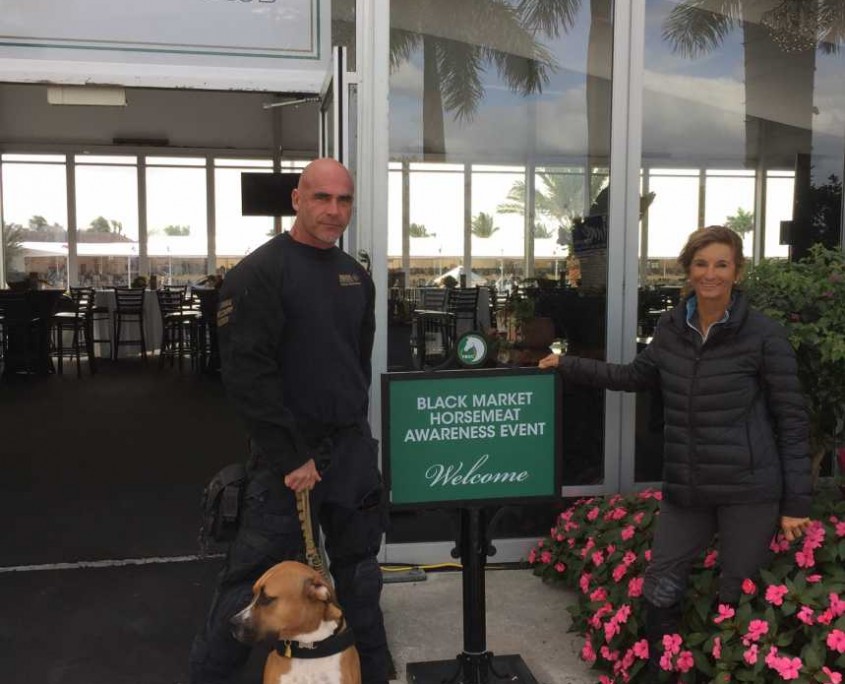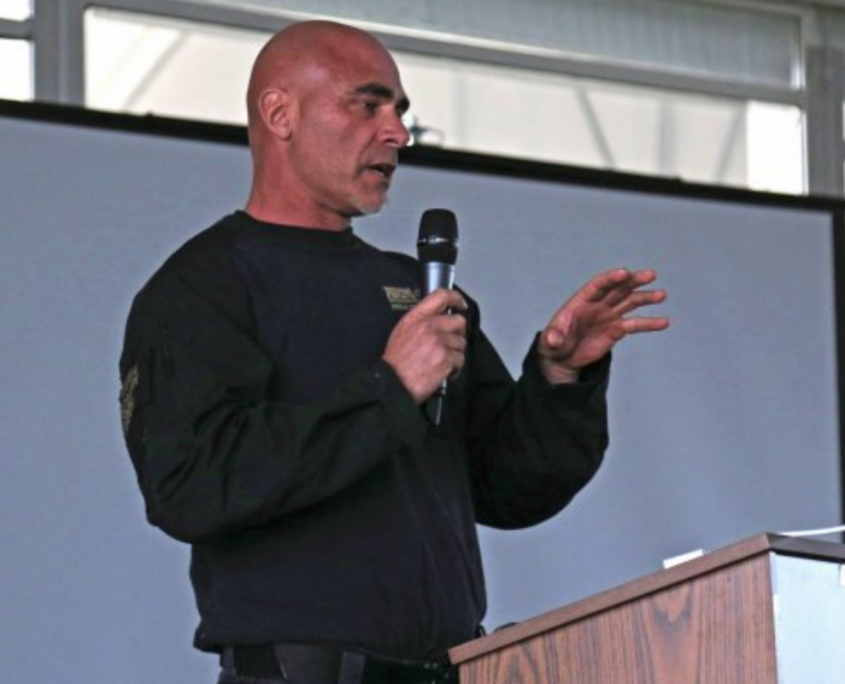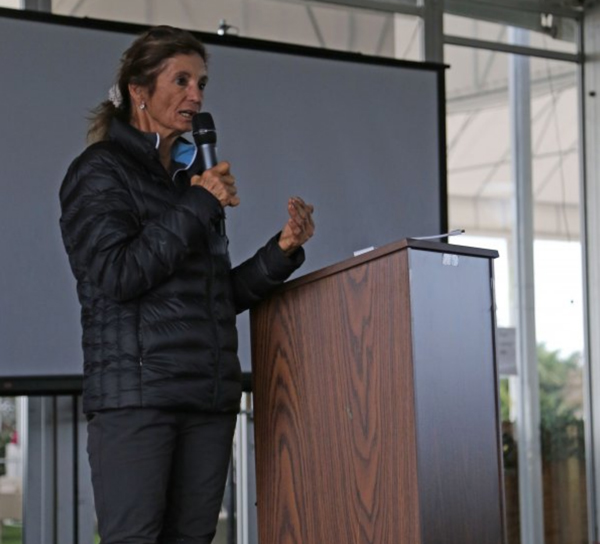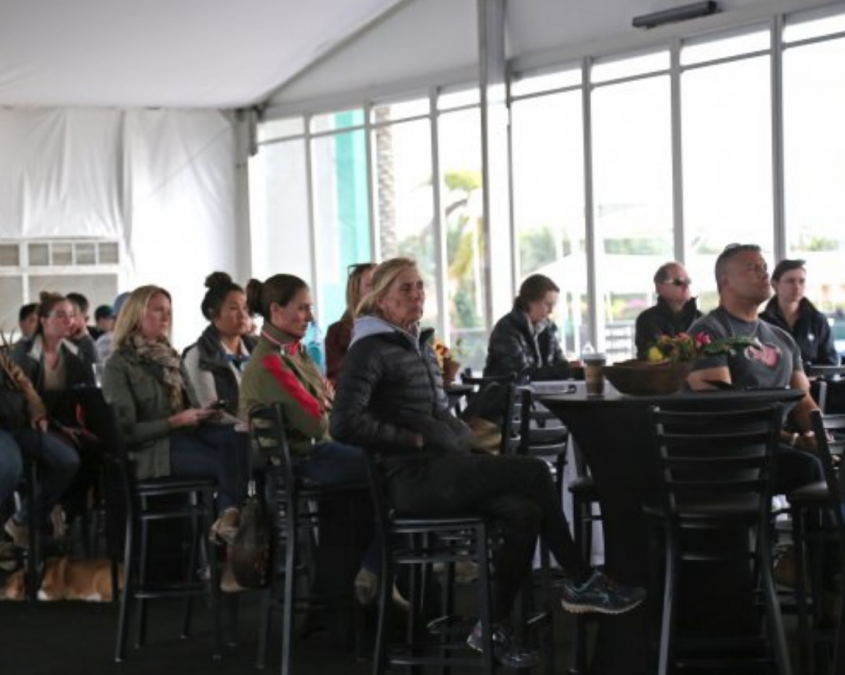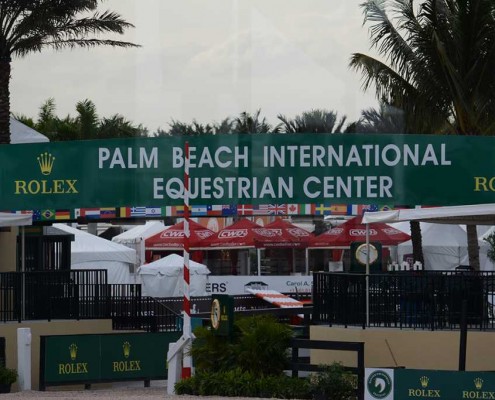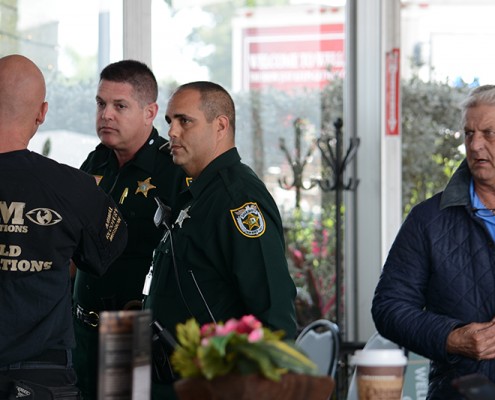On February the 9th, 2016, respected and renown equestrian Debbie Stephens, and ARM’s Richard Couto, hosted an Awareness Seminar, at The Winter Equestrian Festival Showgrounds of Wellington.
The topic on the agenda: to Combat Illegal Horse Slaughter and the gruesome Black Market Horse Meat Trade. “Who would have thought this would happen to any of us. I’m you. I’m just like you”, grand prix rider Debbie Stephens stated to a room of concerned show jumping professionals and horse owners. Stephens partnered with Richard Couto of the Animal Recovery Mission to hold an awareness seminar in the wake of October’s events that put the prevalence of illegal horse slaughter into sharp focus for the Wellington, Florida horse community.
Stephens told her heartbreaking story of her new prospect Phedras de Blondel. Her hopeful champion horse was a Selle Francis gelding that had arrived at her Tampa-area Centennial Farm just two days prior to his slaughter. Phedras was taken from his stall in the middle of the night, and brutally butchered for his meat. “If I can protect one horse, ten horses, or all horses from this happening, that’s all that I want to do,”…. “It’s awful, but it’s something that everyone needs to know.”
Stephens, a veteran of international show jumping sport and a Team USA rider, was hoping to jumpstart her career with Phedras de Blondel. But at 7:05am on October 25th, her groom came to her and said ‘Debbie, your new horse isn’t in his stall.’ After two hours of searching, her staff made the chilling discovery of Phedras mutilated body at the edge of the property.
“Never in a million years could you have prepared me for what I saw…..It was like somebody took me to a lower level. I didn’t cry, I didn’t get emotional, I couldn’t believe that anybody would ever do this to an animal. “– Debbie Stephens
Stephens stated that the worst thing, was how much the horse suffered”. She continued to explain that as they took him out of the barn, they took him in a direction that the horse would never go. He was scared. He tried to get away.Evidence collected from the necropsy and the crime scene proved that the horse was still alive as he was killed.
They are the kind of details that are hard to hear, and were certainly hard to accept had happened to her own horse. change your mindset whether your horse is in a paddock, or a stall, it’s easy to feel that he is protected and safe, Stephens said.
“It is a scary thought for horse owners,” …. “If you have horses in Palm Beach County or the state of Florida, you should be concerned.”. Richard ‘Kudo’ Couto.
Her barn had cameras, lights and other security features, but she never put herself in the place of someone determined to enter her property to steal a horse. Police investigations uncovered that Stephens was watched as she unloaded Phedras when he had arrived two nights prior, at about 12:30am, bringing to light the calculating nature of people who seek out a horse to abduct and butcher. In the wake of the tragedy, she re-examined everything about her operation, including how her property information was available through shipping records while the horse was in quarantine. “It has to be, in my mind, someone who is very comfortable handling a horse,” she said. “They used yellow rope to make a rope halter with lunge line, and the horse just followed them.” She rethought her existing barn security cameras, and added lasers that when broken, set off a series of alarms.
The more deterrents added, the more likely a thief will change their mind and leave. A scary thought but unfortunately, I’ve heard Debbie’s story hundreds of times in the state of Florida,” Couto said.
Richard Couto, Founder of a non-profit organization based out of Miami Beach, Florida. ARM was founded in 2010, after Couto began hearing about incidences of people being approached in the parking lots of Publix and Whole Foods, and even at their front door in Miami Dade county, and being offered horsemeat for sale.
He couldn’t believe what he was hearing, and began to look into the issue. To date, ARM has shut down over 135 illegal slaughterhouses in the state of Florida, some of them who are slaughtering 30 horses per week.
Although there’s a lot of money in the Wellington area, many people can’t afford elaborate security systems. Couto emphasized that having a barking dog on the property is often the most effective deterrent to thieves. Depending on the property, floodlights add another layer of security. So why are people so desperate to break into barns for horsemeat? Many people in the Cuban community think that it is a cure-all for medicinal purposes. Anything from libido, blood disease and lessening the effects of chemotherapy are incorrectly thought to be helped by consuming horse meat.
The larger and more beautiful a horse is, the more its meat is valued for these purposes. That does put show horses at risk more than other breeds or types. Couto mentioned that during undercover investigations, he and his team have heard the butchers openly discuss Wellington and the horse community there. “No horse is safe in the state of Florida,” he said. “It’s a concern that we have here, that most people don’t have in other parts of the country. ARM played a part in forming the The Good Horse Slaughter Act, which is the most severe anti-horse slaughter law in the United States. Being caught with horsemeat carries a minimum, 1 – 5 prison sentence, making the crime of possessing horsemeat more serious than possession of cocaine. Now, when people are caught illegally slaughtering horses, there is real punishment.
ARM is currently undercover at four locations in Florida, working to gather the evidence needed to shut slaughterhouses down. They are starting to see people turn away from illegal slaughter, complaining that the risk of being caught is too high. “It’s a slow process, but the process has to keep going,” Couto said. “This was not a one time case that happened to Debbie. The illegal slaughter industry in Florida is an industry, unlike in any other state.” It all comes down to awareness, Couto and Stephens emphasized, both in the awareness to protect one’s property and horses, and also to be aware of what’s happening in the judicial system when an individual is charged with possession of horsemeat. “The more people that know about it, the more they are going to complain, and scream and shout, and not let people get away with it,” Couto said.
The audience members inquired about what they could to as a community to ensure that there are forces combatting these crimes and enforcing justice to these criminals. The answer is, ARM investigators, who dedicate their lives to finding these criminals, shutting down their illegal operations altogether and invoke prosecution.
Click here to learn more about illegal horse slaughter and The Black Market Horse Meat Trade.
Photos credited to Phelps Sports.com Allyson Lagiovane and Animal Recovery Mission

